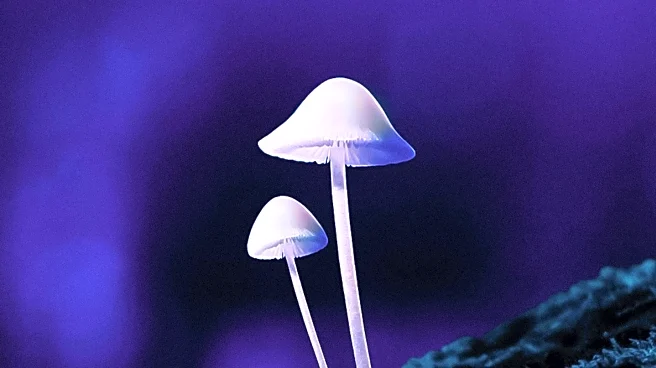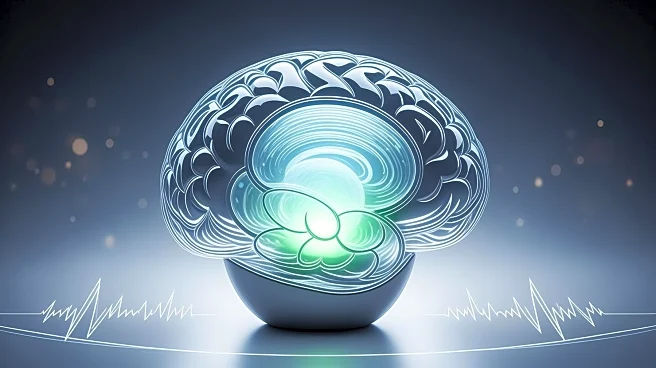What's Happening?
A study conducted at the University of Pennsylvania has found that a single dose of psilocybin can rapidly and sustainably relieve allodynia and anxiodepressive-like behaviors in mouse models of chronic pain. The research involved C57/BL6 male mice, which were subjected to sciatic nerve injury (SNI) or complete Freund's adjuvant (CFA) to induce chronic pain. Psilocybin treatment was shown to reverse the affective-related behaviors and motor function deficits caused by these conditions. The study highlights the potential of psilocybin as a therapeutic agent for chronic pain, with the treatment showing significant improvements in anxiety and depression-related assays compared to sham/saline controls.
Why It's Important?
The findings of this study are significant as they suggest that psilocybin, a compound found in psychedelic mushrooms, could be a promising treatment for chronic pain, a condition that affects millions of people worldwide. Chronic pain is often accompanied by anxiety and depression, which can severely impact the quality of life. Current treatments for chronic pain are limited and often come with side effects, making the discovery of new therapeutic options crucial. Psilocybin's ability to alleviate both pain and associated mood disorders could offer a dual benefit, potentially reducing the need for multiple medications and improving patient outcomes.
What's Next?
Further research is needed to explore the mechanisms by which psilocybin exerts its effects on chronic pain and mood disorders. Clinical trials in humans will be essential to determine the safety and efficacy of psilocybin as a treatment for chronic pain. Additionally, understanding the long-term effects of psilocybin use and its potential interactions with other medications will be important for its development as a therapeutic agent.










